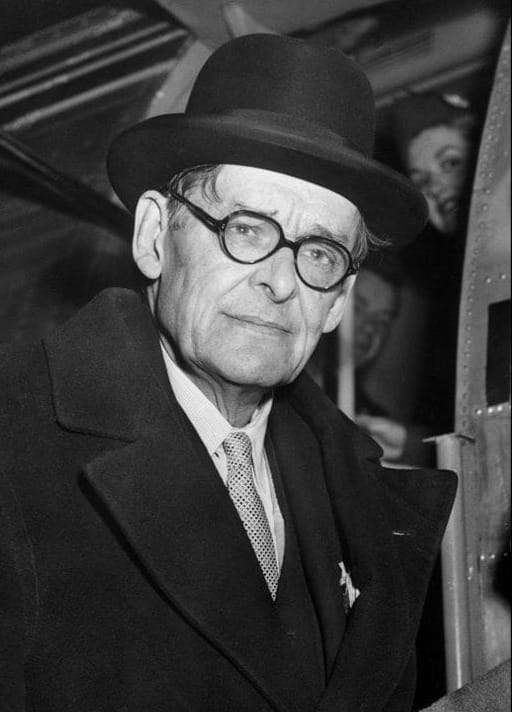Finally - where does Eliot fit into our modern world?

Well, the short answer is, everywhere.
Welcome to Part 3 of how The Hollow Men by T.S. Eliot resonates across place and time. This is the last post on The Hollow Men – thank you for learning with me thus far! 🤩🤌
It's hard to imagine our world as spiritually, much less perpetually, hollow. Especially for modern Australian society – aren't we egalitarian, individualists, and advocates? Or are these just myths?
In concluding...
Eliot firmly argues in support of the pertinence of a lack of a metanarrative today. Importantly, he suggests that this lack of a meta-narrative may be perpetual. The conclusion of the poem opens with a parody of the child’s nursery rhyme, ‘Here We Go Round The Mulberry Bush’ — except, Eliot makes it far more distorted and sinister, replacing ‘mulberry bush’ with “prickly pear”.
The repeated line of “Here we go round the pricey pear” does not conjure a pleasant and innocent atmosphere a nursery rhyme would, but contrastingly conjures an atmosphere of tragic inevitability. It is almost as though there is an eternal “going round” the prickly pear, an eternal lack of a metanarrative.
This stance particularly resonated with me when reading it aloud as the harsh, plosive sounds of “prickly pear” reminded me of how modern Australia has substituted beautiful things, like the ‘mulberry bush’, natural bushland, and close-knit communities, with unpleasant things like the “prickly pear”, urbanised cities, and fragmented social networks.
The final stanza of the poem repeatedly concludes that “the way the world ends” is in a depressing condition — there may forever be no meaning to be found in modern people’s lives. In the last line of the poem, “this is the way the world ends, not with a bang but a whimper”, Eliot also subtly criticises the readers. He argues that we are worse than people like Kurtz, who have the courage to lead adventurous lives and go out with a ‘bang’. Instead, we are merely hollow men who dare to go out with a silent plea.
Through the depressing atmosphere conjured by language and form patterns in the poem’s conclusion, Eliot suggests that modern peoples’ lack of a metanarrative may be perpetual.
Final thoughts 🧐
Often considered the father of existentialism, Jean-Paul Sartre states, "Anything, anything would be better than this agony of mind, this creeping pain that gnaws and fumbles and caresses one and never hurts quite enough." T.S. Eliot, in his seminal modernist poem, The Hollow Men, portrays this "agony of mind" experienced by the hollow men to highlight the "creeping pains" of a sordid urban existence. Through artfully crafted language and form, Eliot urges us to contemplate our own modern condition. Specifically, to be critical of how irreligiosity (due to the modern lifestyle) can cause a debasement of morals, how in turn this debasement of morals can lead to a lack of a metanarrative, and how this lack of a metanarrative can be perpetual. Eliot's pastry has resonated deeply within me, and made me reflect on existing spiritual hollowness within me.
Wanna hear more about 'The Hollow Men'? Subscribe to get updates! It's free, and I would love to hear your thoughts as well. 🤗 🤗
